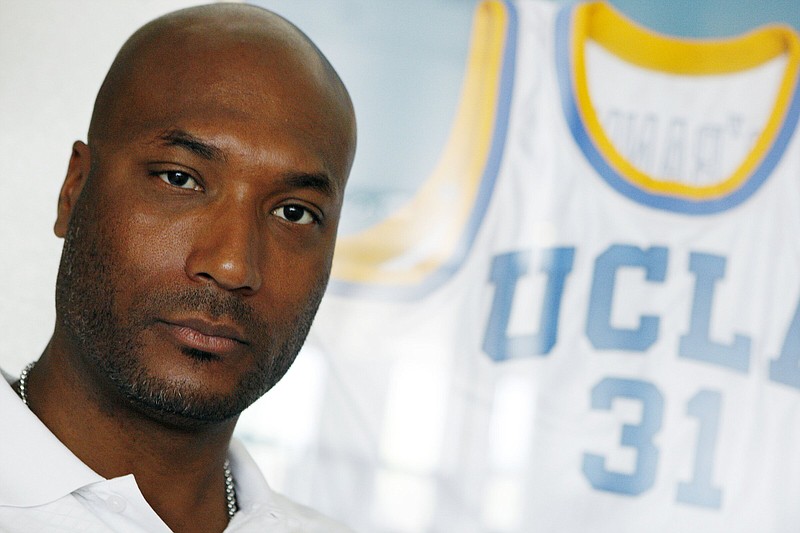What is the NCAA good at? Staging basketball tournaments. Man, those things are great. March is awesome. Is this the first year the women's tournament is more anticipated by a national audience than the men's? What a fun debate. Can't wait for the selection shows.
Other than that ... maybe losing court cases?
That's, really, the list. In every other aspect of governing college sports, the NCAA is either outdated, overmatched or both. Just ask ... the NCAA.
"The Association believes change in college sports is long overdue and is pursuing significant reforms," the group said in a statement earlier this week.
I'll give you time to suppress your chuckles. The Association believes change is long overdue? What exactly has it been doing all this time? College sports are splintering into a million pieces and as many court cases. The NCAA is in control of none of it, pulling back in vain when it should have been pushing forward.
Fundamental change has been coming to college sports for more than a decade, ever since the Supreme Court upheld a lower court's decision in the case known as O'Bannon v. NCAA. We now have athletes who can make money when companies promote their products using those players' names, image and likeness. We now have players who have the freedom to change schools when they want, just as other students could do. Do those developments come with headaches? Sure. Are they fair? Absolutely.
As the latest development -- this week's vote by the Dartmouth men's basketball team to unionize -- threatens to further change the NCAA's ability to regulate what and how athletes can earn, it's instructive to think back to the O'Bannon case. Remember that one? UCLA men's basketball player Ed O'Bannon filed the suit on behalf of Division I men's basketball and football players, arguing that those athletes should be able to receive compensation for the NCAA's use of their images or likenesses -- after graduation.
It seems so obvious now. The players produced the product. The NCAA -- and conferences, and coaches, and administrators -- made the money. All of it. O'Bannon and the legions of athletes he represented were right. The Supreme Court validated that.
And no one in the leadership of college sports at the time stopped to say, "Let's be realistic about where this is going: If the court ruled in favor of the players after they graduate, why wouldn't they eventually rule they could earn that money while they're playing the games off which we make money? In real time?"
The NCAA was formed in 1906. When, exactly, it began chasing its tail is up for debate. It wasn't ahead of NIL money coming to athletes even though that was basically telegraphed ahead of time. It's not ahead of unionization now.
The Dartmouth case is interesting in part because it's Dartmouth, not Kentucky or North Carolina. The kids who voted to unionize at the Ivy League school aren't supporting a seven-figure salary for their coach or filling a gym with 20,000 paying customers 20 times a year. But they can look around their campus, see the employees who make it go, and think, "Shouldn't we have a voice in the conditions in which we work?"
"It is self-evident that we, as students, can also be both campus workers and union members," Dartmouth players Cade Haskins and Romeo Myrthil, the duo behind the union drive, said in a statement. "Dartmouth seems to be stuck in the past. It's time for the age of amateurism to end."
The NCAA's response could be: We'll listen to you. What do you want? We'll -- and this is the proper word -- bargain with you.
Instead, it said this: "The NCAA is making changes to deliver more benefits to student-athletes including guaranteed health care and guaranteed scholarships, but the NCAA and student-athletes from all three divisions agree college athletes should not be forced into an employment model."
The Dartmouth athletes aren't being forced into anything. They're striding into new territory.
About that. During the upcoming NCAA basketball tournaments, we'll be barraged with ads promoting the NCAA and its ideals. One that's available now uses sports highlights set to moving music. In words set over the images, it touts the organization as providing "opportunity to break a ceiling, grow, blaze a trail, expand the mind, leave a legacy, change history -- win. For student-athletes, opportunity is just the beginning."
The NCAA wants to position itself as an organization that fosters leadership and develops visionaries through sports. But so often, the organization seeks to suppress those leaders and visionaries, rather than uplift them.
Charlie Baker, the relatively new NCAA president, is trying to be proactive in asking Congress to establish laws that would deliver a more modern college sports model and, importantly, protect the NCAA from antitrust litigation. But even that is telling. It's an admission that the organization has lost control of its mission and desperately needs federal help to have any hope of getting it back.
The NCAA was not built for this era. Without leadership that can anticipate what's coming rather than react to what happens, it is obsolete. Stage the basketball tournaments, because they are annually some of the best sporting events on the calendar. But the rest of the business -- because that's what it is and has been for decades -- has to change to meet the needs of those whose labor has built it. Because they're no longer waiting around for the people ostensibly in charge. They're doing it themselves.
